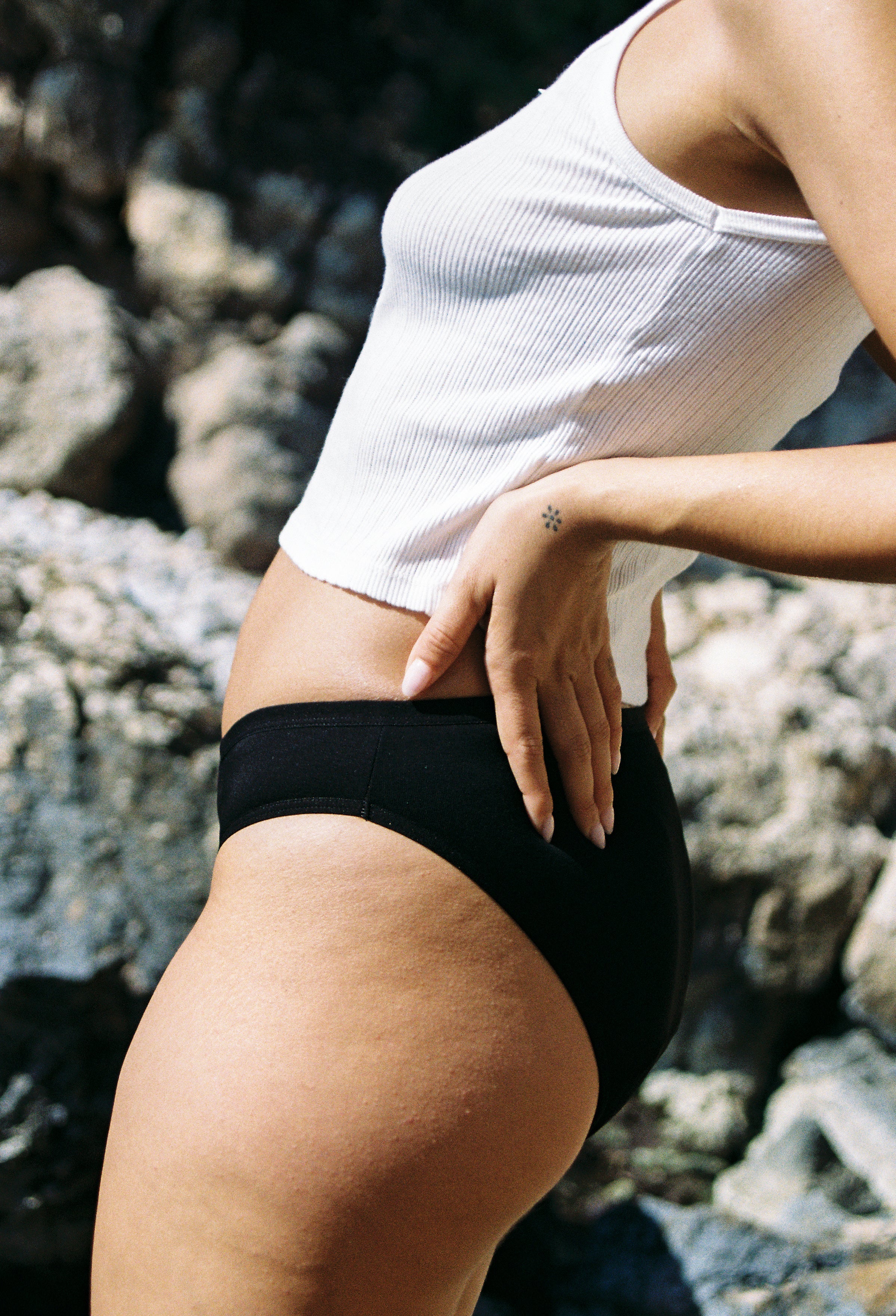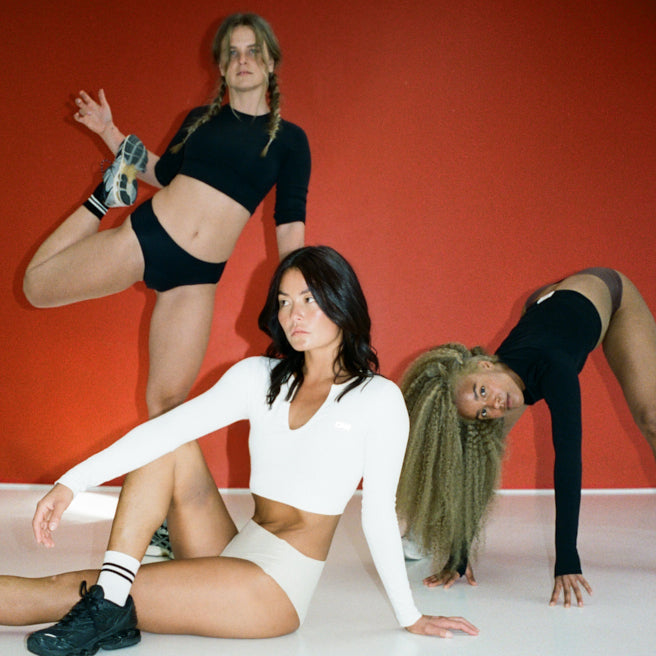As we head into the summer months, going outside more, and wearing less, it can be intimidating to start using a menstrual cup. The rising temperatures make us hotter and sweatier, and using festival toilets - or not having access to running water - can be challenging when trying to change your menstrual cup. Being on your period at a festival, wild retreat, or even camping out in the great outdoors, can be frustrating, but don’t let it ruin the experience! There are ways you can prepare so that you can still feel confident and comfortable whilst on your period.
What to expect
Being outdoors without running water, or relying on portable toilets, potties, or holes in the ground, can be tricky with a period. Wild camping on your period can be a pain at night, or with random changes in the weather. You won’t want to leave your tent at 3 am in the pouring rain to change a tampon, or wait in a queue for the portaloos just to miss your favourite band.
It’s good be as prepared as you can, and to pack the right clothing, period essentials, and avoid certain things leading up to your trip.
The first thing is to plan ahead for your trip. Where are you going? How long is the trip? What kind of facilities will be available? How much room do I have in my bag? Is there clean or running water? Based on those answers you’ll be ready for the next step.
Backpacking essentials on your period
Backpacking on your period requires special consideration, particularly when it comes to managing menstrual hygiene in the wilderness. The great outdoors offers a profound connection with nature, but also calls for careful planning in terms of menstrual care.
Firstly, if you're backpacking, space and weight are critical. Choose lightweight and compact menstrual products. A menstrual cup can be ideal as it's reusable and doesn't take much space.
However, if you're uncomfortable with the idea of cleaning it in the wilderness, consider biodegradable wipes for hygiene.
What to pack
Depending on how much space you have, you could always add or take away a few items. It’s good to have a small bag filled with basics. You can bring tampons, pads, period underwear, or a menstrual cup. If you’re not sure what’s the right fit for you, we’ll talk about the pros and cons next. You should also bring hand sanitiser, toilet paper, tissues, rubbish bags, a laundry bag, pain relievers, medications, and unscented wipes.
A designated cleaning bowl is also helpful if you’re going to be using reusable period products. Also remember to pack snacks that are high in iron, fibre, magnesium and vitamin E - things like nuts, bananas, seeds, and wholegrain crackers or bread. And, if you can, bring spare pairs of underwear and maybe an extra pair of trousers in case of any accidental leaks.
Menstrual cups or disposable period products for camping?
Both have their pros and cons, and menstrual cups allow you to go a lot longer without changes than disposable products. They can last up to 12 hours and just need to be emptied and rinsed, if you don’t have access to a bathroom. They take less space than disposable products, and you don’t have to worry about holding on to waste as they are reusable! Once you’re in a spot with a working bathroom, or back home, you can clean and sanitise your cup as usual. We recommend you don’t use hand sanitiser on your cups as it can be unsafe and damage your cup.
Tampons are less messy to change than menstrual cups, and can be easier and quicker to use, but if you’re deep in the woods you’ll have to hang on to them until you’re at a place where you can dispose of them. This can take up unnecessary space, cause odour, and is a hassle. If your period is on the lighter side, you could wear period underwear, and you should bring 3 pairs depending on your flow. You can easily rotate them whilst you’re waiting for the others to dry after washing. It’s a lot more comfortable than traditional pads especially if you’re going to be hiking.
What to wear
You might want to avoid tight fitting clothes. Although it can be inviting to dress up at festivals, you want to avoid stress and feel your best. This means avoiding jeans and other tight clothing, which can make cramps worse. Also, tight clothing around the groin area can be a breeding ground for bacteria, causing you to sweat more. Loose fitting clothes, like tee shirts, and flowy trousers can still keep you looking cute and comfortable. Period underwear is a great option for those with lighter flows as well, and it’s very comfortable and gives you a free-bleed feeling.
What to avoid
Stay away from scented period products, as they can cause infections, irritations and even attract animals.
If you’re camping out at a music festival surrounded by food trucks, avoid the greasy and fried foods. They can make your cramps worse!
Also, don’t assume essentials will be provided when you’re camping anywhere. It’s best to make sure you bring all the basics you need for hygiene - just in case.
How to change a menstrual cup when camping
It’s fairly easy to take care of your menstrual cup when you’re out in the fresh air. It just takes a few extra steps.
Sanitise
Before you even head out to your trip or concert, be sure to sanitise your cup: boil it in water for 5 minutes (making sure it doesn’t touch the bottom of the pan) to ensure it’s thoroughly clean.
Dig
If you’re out in the woods, and don’t have access to a toilet, you need to dig a little hole called a cathole. A cathole should be at least 100 meters from a water source, not near rocks and trees, and is 15 to 20 cm deep and 10 to 15 cm wide.
Pour
Make sure your hands are clean, then remove your cup. Simply pour the contents from your menstrual cup into the cathole.
Rinse
Make sure to rinse your cup with a water bottle and wipe with either a disposable wipe, or toilet or tissue paper. And then reinsert your cup!
Cover
Then all that’s left for you to do is to cover your cathole, and put any wipes, tissue, or toilet paper into a bag to be disposed of later.
Plan before your monthly
There’s not much you can do in advance to stop your period, but you can always keep track of your cycle to try to make your camping or festival plans not coincide with your period. But we all know this doesn’t always work. If you’re on a birth control pill, you can ask your doctor if it’s okay to skip your breakthrough bleeding week to delay getting your period.
Are animals attracted to menstrual blood?
Now, addressing a common concern: are animals attracted to menstrual blood?
This is largely a myth. Most animals, including wild ones, are not attracted to menstrual blood. However, practicing good hygiene and responsible disposal of menstrual waste is essential. For sustainable practices, avoid burying any non-biodegradable products. Instead, carry used products with you until they can be disposed of responsibly, ensuring a minimal environmental impact.
Managing your period at festivals
When planning how to deal with your period at a festival, it’s vital to consider the amenities available. Festivals often have limited and overused facilities. This can make managing your period more challenging, especially if you're using a menstrual cup. Always carry a small, discreet bag with your menstrual supplies, including hand sanitizer and tissues, to make the process easier.
Remember, at a festival, you're there to enjoy the music and the atmosphere, so don't let your period hold you back. With the right preparations, it can be just another part of your adventure.
Don’t forget about personal comfort! Opt for breathable, moisture-wicking fabrics, especially in underwear, to stay comfortable and dry. Loose-fitting clothes can also be a boon when you’re moving around a lot, be it hiking through the woods or dancing at a festival.
And remember, the key to a successful trip, especially when backpacking on your period, is preparation and the right mindset. With a little planning, you can ensure your period is just a small part of your adventure, not a hindrance.






